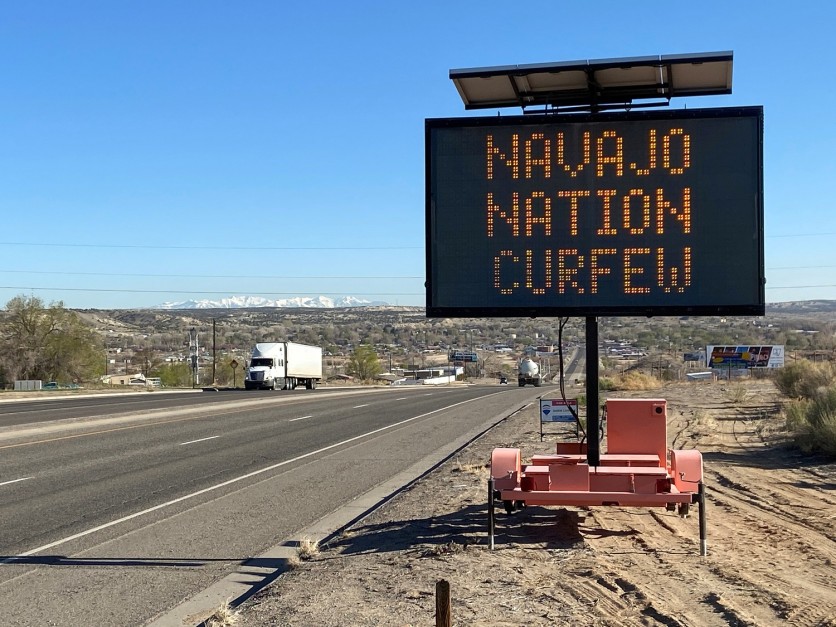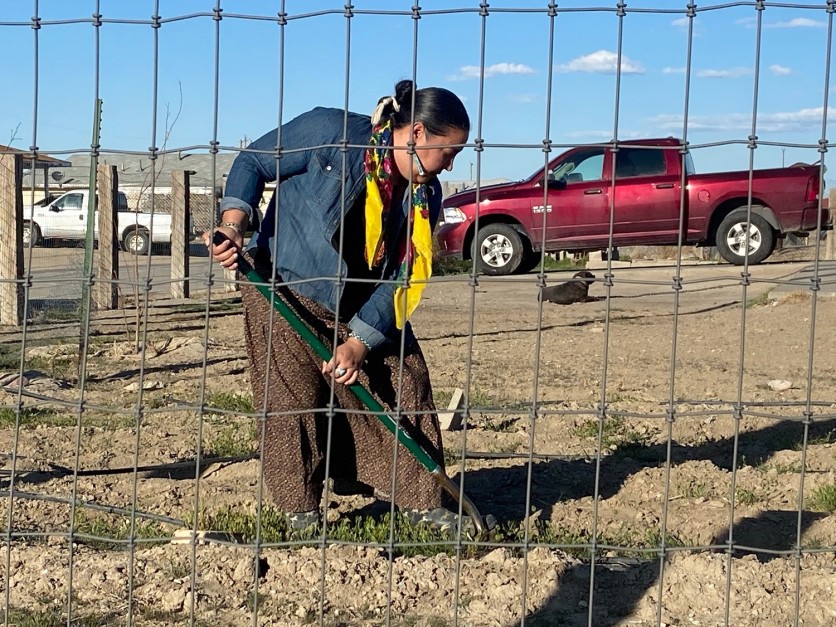Doctors Without Borders, also known as Médecins Sans Frontières (MSF), is working with New Mexico's Native American communities to help curb the spread of coronavirus.
The organization told CNN that a team comprised of nine persons arrived in Gallup late April and has been working with the Navajo Nation since. Jean Stowell, who heads the organization's US Covid-19 response team, said the team expects to stay there until June.

The Navajo Nation is the largest U.S. Indian tribe, which consists of over 298,000 members, from which 106,800 live in New Mexico. Its capital lies about 25 miles northwest of Gallup, said the New Mexico Tourism Department on its website.
It is one of the regions that are hardest-hit by the coronavirus in the United States. While it has low population density, its COVID-19-related death rate is much higher than that of 46 states. As of May 9, there are a total of 2,976 confirmed COVID-19 cases of Navajo Nation.
"At the moment, MSF is focusing on providing technical guidance to health care facilities and communities with infection prevention and control. We are also actively engaged with community leaders and other actors to increase access for communities to health promotion and practical education," Stowell said in a statement.
The state's governor in the neighboring city of Gallup has declared a state of emergency to help control an outbreak and "mitigate the uninhibited spread" of coronavirus and closed all roads into the city.
Stowell said the organization has helped in epidemics around the globe, "providing support to people who have been excluded from health care and emergency response."
"Historically, the Navajo Nation has not received the same attention and resources as other communities in the U.S., and that has made it particularly difficult for them to respond to this unprecedented epidemic," said Stowell, so they went to the area to assist.
Stowell exclaimed that the Navajo Nation leadership and the Indian Health Service welcomed them as they join the authorities and other non-governmental organizations to control the outbreak in this community.
Meanwhile, a second smaller team arrived mid-April north of Albuquerque, where they have been assisting the Pueblos.

A huge feeling of isolation
A Navajo Nation doctor shared with CBS News reports their experiences in the frontline. Their first COVID-19 case in Tuba City was reported in mid-March after a church event, which was suspected to trigger the spread of the coronavirus in the community.
"Since then, we've had a lot of those people fall ill and show up here at our facility," said Dr. Sophina Calderon, deputy chief of staff at Tuba City Regional Health Care Corporation. "That's when things changed significantly."
Calderon said that they stopped their regular medical services. They set up an outdoor screening area and repurposed the pediatric care unit to a respiratory care unit. However, despite having 24 beds in that unit, they can only fill about 15 beds due to staff and nursing shortage.
Before COVID-19, there are already a lot of vacancies on the Indian Health Service Hospitals across the country, but the health workers can manage the situation then. However, when coronavirus hit, such "deficiency just really became much more apparent."
Since critical COVID-19 cases require patients to be intubated, they cannot keep everyone within the facility. Although they have space and ventilators within the facility, their staff cannot keep up with the increase in patients.
"We could keep more critical patients here if we could increase our ICU nursing staff, critical care nursing staff, and if we could get an intensive care doctor," Calderon said.
"One of the things that break my heart is the number of people we need to transfer out every day. Families are left stranded from each other," she added.
Many families are already greatly affected. A lot of the illness has clustered in some families. A parent, two children, and a brother - all in one family have died. It's something that really affects me significantly because I live here. My whole family is here.
While New York, New Jersey, and Louisiana get huge help from the government from PPE, financial support, or staffing, Navajo Nation has not seen as much assistance.
"There is a huge feeling of isolation," told Calderon. The doctor who grew up outside of Tuba City said many families already feel isolated on whether the government is even aware of their situation.
ⓒ 2026 TECHTIMES.com All rights reserved. Do not reproduce without permission.




